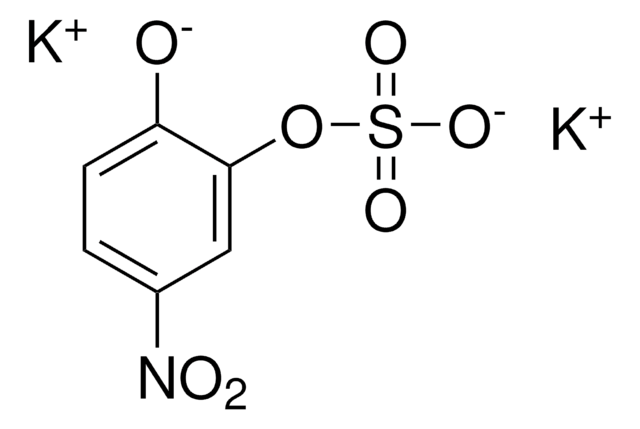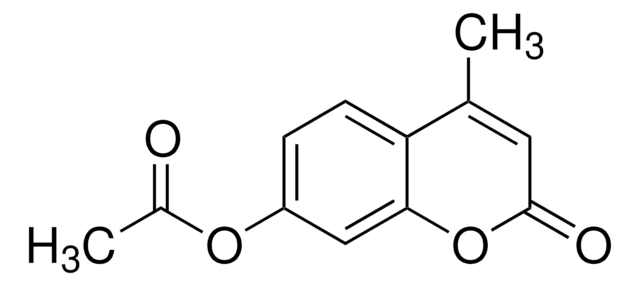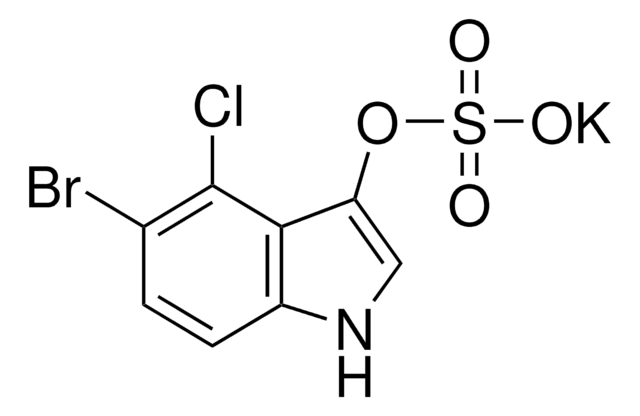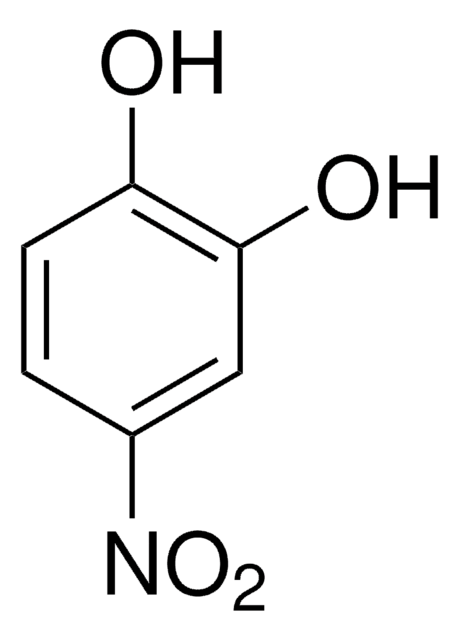M7133
4-Methylumbelliferyl sulfate potassium salt
sulfatase substrate
Synonym(s):
Potassium 4-methylumbelliferyl sulfate
About This Item
Recommended Products
Assay
≥99% (HPLC)
form
powder
solubility
water: 5 mg/mL, clear, colorless
fluorescence
λex 334 nm; λem 370 nm (pH 10.4)
λex 360 nm; λem 449 nm (Reaction products)
storage temp.
−20°C
SMILES string
[K+].CC1=CC(=O)Oc2cc(OS([O-])(=O)=O)ccc12
InChI
1S/C10H8O6S.K/c1-6-4-10(11)15-9-5-7(2-3-8(6)9)16-17(12,13)14;/h2-5H,1H3,(H,12,13,14);/q;+1/p-1
InChI key
CSOCSPXOODWGLJ-UHFFFAOYSA-M
Looking for similar products? Visit Product Comparison Guide
General description
Application
Biochem/physiol Actions
Storage Class Code
11 - Combustible Solids
WGK
WGK 3
Flash Point(F)
Not applicable
Flash Point(C)
Not applicable
Personal Protective Equipment
Certificates of Analysis (COA)
Search for Certificates of Analysis (COA) by entering the products Lot/Batch Number. Lot and Batch Numbers can be found on a product’s label following the words ‘Lot’ or ‘Batch’.
Already Own This Product?
Find documentation for the products that you have recently purchased in the Document Library.
Customers Also Viewed
Articles
Drug conjugate analysis and the enzymatic hydrolysis of glucuronides
Our team of scientists has experience in all areas of research including Life Science, Material Science, Chemical Synthesis, Chromatography, Analytical and many others.
Contact Technical Service













